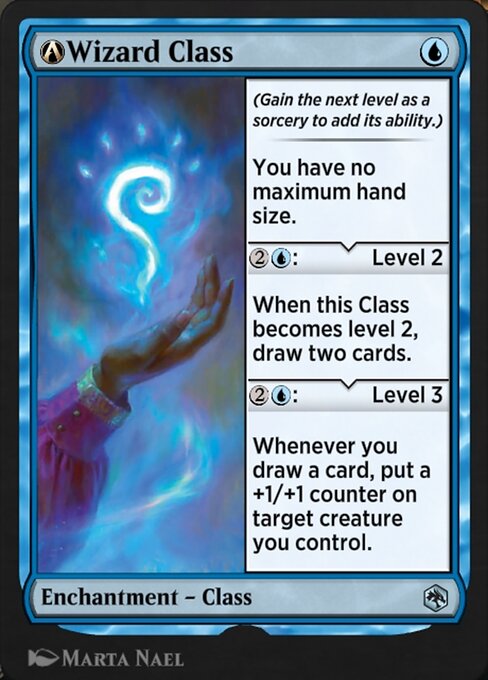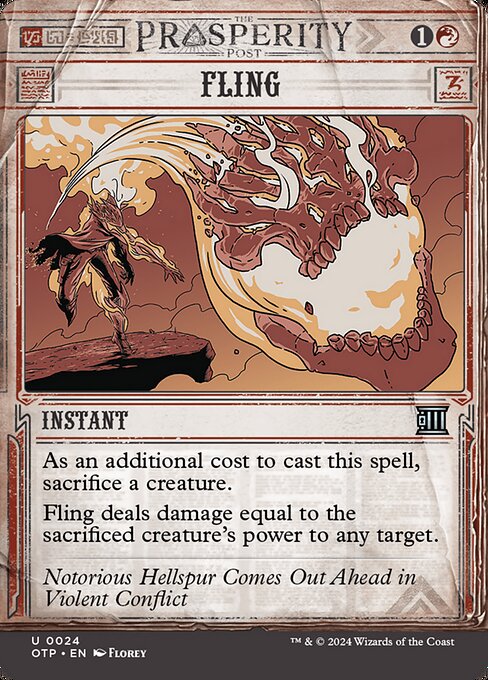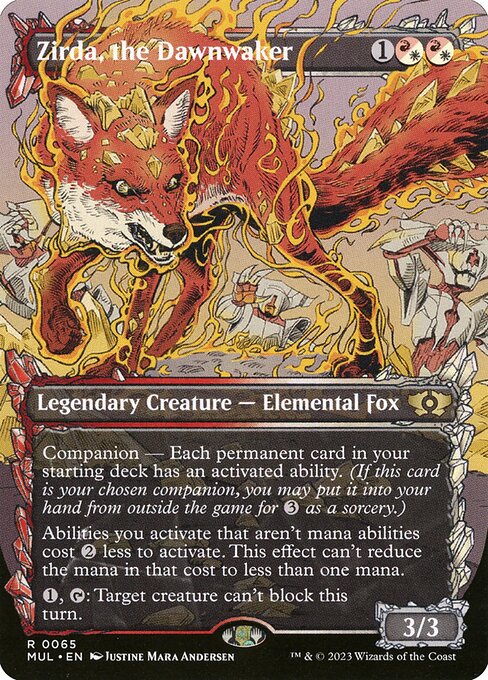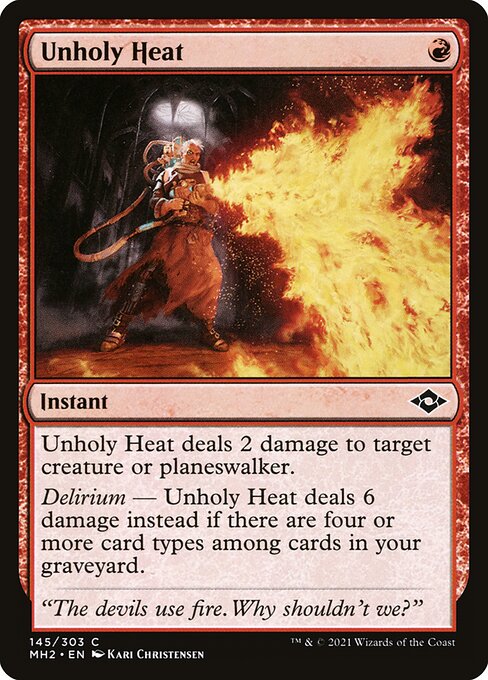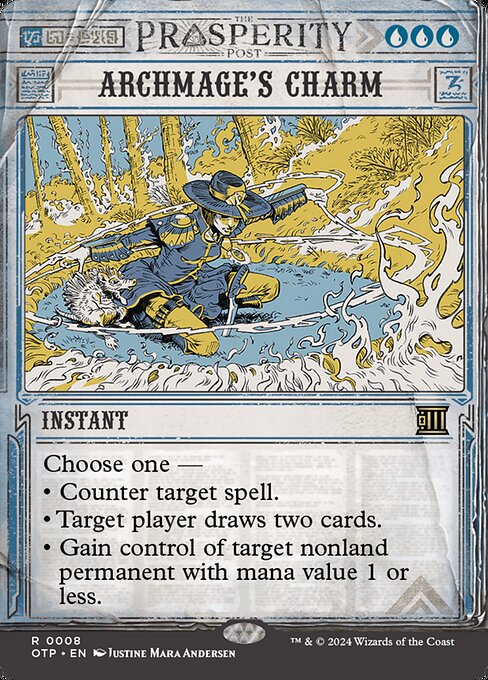Table of Contents
There are two very opposite sites of a Magic interactivity spectrum. On one end, you have combo decks that try to do their best to ignore what the opponent is doing in order to execute their usually hard-to-interact-with game plan, resulting in gaining a significant advantage or straight out winning the game. On the other end, you have control decks whose nature is predominantly, or even exclusively, reactive – the whole deck consists of interaction, card draw to have more interaction, and just a sprinkle of ways to actually win.
There is a macro-archetype that actually takes advantage of the best aspects of both control and combo and it’s combo-control. You may have heard of decks like Jeskai Saheeli, Azorius Approach of the Second Sun, or Splinter Twin. Today, I want to present you with a deck that embodies this approach in Historic – Izzet Biomancer Combo. It interacts with the opponent for as long as necessary to eventually win, seemingly out of nowhere. What I like about this particular shell is that its combo pieces are mostly okay cards that fit the plan – there aren’t many straight-up dead cards drawn in the hopes of assembling the combo.
Let’s break down some specific card choices.

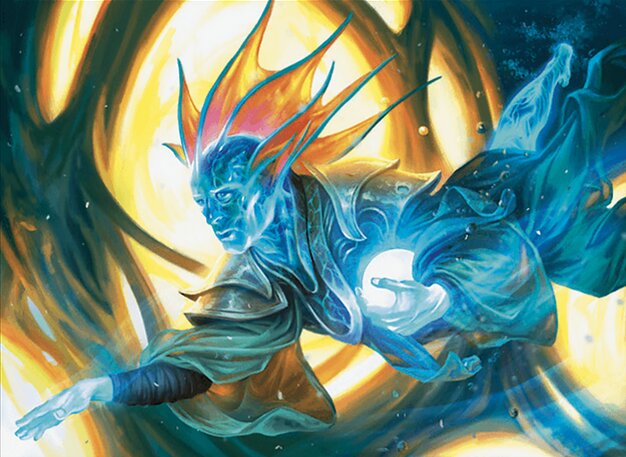
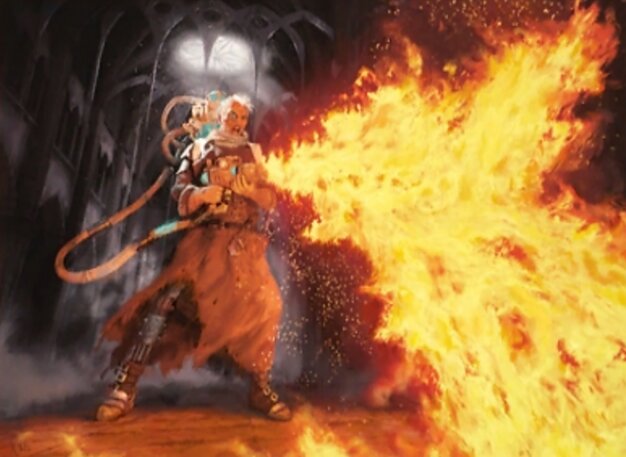
Companion
Planeswalkers (2)
Creatures (3)
Instants (14)
Artifacts (2)
Lands (24)
60 Cards
$212.49
Sideboard
15 Cards
$15.05
Deck Tech
Let’s start off with the combo in question. I am going to tell you what the cards do individually and then we will put the pieces of the puzzle together.
There is only one creature in the deck and that’s Benthic Biomancer. It can Adapt, but more importantly has the trigger of getting to draw and discard whenever it gets a counter on it. The usual fair play pattern is playing it on turn one and Adapting on turn two, making it a 2/2 and filtering your draw a bit with its trigger.
A-Wizard Class has three modes. The first one is the static ability that you don’t have a maximum hand size. While you may think it’s largely irrelevant, you’ll see how many games you’re going to end up with a ton of cards in hand. It’s not a game changer, but it does come up. Thanks to its low cost, you can deploy it turn one when nothing has happened yet.
The second chapter is literally Divination. I usually use it when the battlefield is clear and I can afford to take a turn off and draw a few cards.
The last chapter allows you to put a counter on a creature if you’ve drawn a card. We don’t play many creatures, but we do play Biomancer.
Consequently, with A-Wizard Class on the last chapter, if you draw a card, a chain reaction starts with Benthic Biomancer on board. You draw so you trigger Class, you put a counter on Biomancer. Biomancer gets a counter so it triggers and draws and discards a card. You’ve drawn a card so Class triggers again – ad infinitum. Actually, it’s not really infinite as you can’t stop the chain once it’s going and you’re going to lose due to decking. So how do you win if the end result is a 50/50 Biomancer and your library empty?
There are two ways to win once you’ve got the combo ready. Jace, Wielder of Mysteries’ passive makes you win the game if your deck is empty. A quick process of connecting the dots reveals that if Jace is on the field when the aforementioned loop is happening, you’re going to win. What’s great about Jace is that it’s a generically strong planeswalker to play in your Izzet control deck. You play a reactive game, at some point drop Jace, keep drawing cards, and assemble the combo at your leisure.
In games where the combo is not easy to assemble, it’s still a card advantage machine that allows you to essentially draw two cards a turn. At that point, you’ll probably switch gears to full control and win the game through more conventional means like Shark Typhoon tokens, Typhoon hardcast, Zirda beats, or even Jace’s ultimate.
The second way to win is Fling. Once your Biomancer’s power is greater than the opponent’s life total, you can hold priority (CTRL button) and in response to one of your own triggers Fling it at the opp thus winning the game. If you don’t have it in hand yet, you’ll eventually draw it as you’re going to see the entire library.
You can get the combo going with Biomancer and the third Class chapter in a few ways. You can activate Jace to draw a card, Adapt Biomancer to draw a card, use any other spell to draw a card, or pass the turn and go off in your draw step.
It’s important to mention that this deck is one of those few shells that can and do play Zirda, the Dawnwaker as its companion. While the restriction is severe, it perfectly slots into this deck. Most importantly, Zirda discounts the level ups on A-Wizard Class which makes it much more efficient.
You usually put it into your hand in two spots. One – you have literally nothing else to do so you pay 3 to put it into play. Two – when you are sure that in the next one or two turns Zirda’s discount is going to play a major role. For example, you could want to set up a situation when you want to make a huge Shark Typhoon token or double level up Wizard Class.
The rest of the deck is interaction. The deck plays 11 pieces of removal.
The now-nerfed A-Unholy Heat still kills everything you might want to kill. There are seven card types in the deck, so it shouldn’t be that difficult to turn on. It’s our best removal both early and late game as two damage is usually enough for the 1-2 mana creatures, and later, four damage should be sufficient often enough.
Fires of Victory might not be a powerful constructed card at large, but it does shine in this deck. You draw cards like crazy in this shell. In the later stages of the game, it should deal 5-9 damage, especially if kicked.
Molten Impact and Anger of the Gods are our sorcery speed removal spells. Impact deals four which is very relevant against Selesnya decks, especially Angels. Its trigger is very relevant as well as, if you kill a creature with two toughness, you get two damage in reserve for later. Then, if you Unholy Heat with Delirium, you can kill a creature with six toughness or four toughness and a different threat with two toughness as you can deal the excess damage to a different creature. Anger is a card that’s not usually anticipated by opponents. Three damage across the board is going to be very effective against go-wide decks like Elves, Humans, Mono Red, and potentially Wizards – all popular decks.
The last card worth bringing up is Archmage's Charm. The card’s true power lies in the fact that it itself defeats the one inherent counterspell flaw – time-sensitivity. You want to counter a spell, but if the opponent does not play into it, you draw two. The third mode is a cherry on top, but it does come in handy when you want to take opposing token creatures, tokens like Food or Clue, powerful one drops like Soul-Scar Mage, or A-Symmetry Sage, or other miscellaneous permanents like Retrofitter Foundry. Its multi-purpose nature makes it quite tough to play as you have to make the best choice. Countering a spell won’t always be the best option – sometimes, you’d prefer to draw two and replenish your resources rather than counter.
Matchups and Sideboard Guide

Izzet Wizards
| IN | OUT |
|---|---|
| +1 Anger of the Gods | -1 Prismari Command |
| +1 Abrade | -1 Fling |
| +3 Aether Gust | -2 Soul-Guide Lantern |
| -1 A-Wizard Class |
An Izzet mirror match, but both parties play a completely different game plan. While they will strive to put as much pressure on us as possible, we will try to thwart that plan by prolonging the game. Our deck has a lot of card advantage, so the longer we stay alive, the more cards we will draw, hence it’ll be easier to win. Once we manage to stay alive, we will be able to assemble to combo at some point or just win with a hard cast Shark Typhoon that’s going to be tough to contest.
While Soul-Guide Lantern may come in handy game one by exiling the graveyard and rendering Dreadhorde Arcanist useless, I don’t want to see this card in most spots. Other than that, we side in more removal so that our deck consists mainly of lands, interaction, and card draw. Don’t keep non-removal hands. If you only have Anger of the Gods in the opener, but you are on the draw, it’ll be too slow. It might even be too slow on the play.
Azorius Affinity
| IN | OUT |
|---|---|
| +3 Mystical Dispute | -2 Soul-Guide Lantern |
| +1 Abrade | -2 A-Wizard Class |
It’s important to recognise that in this matchup you ought not to sink too much mana into A-Wizard Class as it may be easily exiled by Portable Hole. I’d much rather try to set up a Fling kill. Mystical Dispute can counter an early Sai, Master Thopterist or Thought Monitor which is a great application of it.
Keep Abrade and Prismari Command for the difficult permanents like Retrofitter Foundry or Nettlecyst and Anger of the Gods for when they go wide. Archmage's Charm taking over a Germ token won’t do much as they will re-equip Nettlecyst, but it does the job against Constructs made by Karn, Scion of Urza.
Selesnya Lifegain
| IN | OUT |
|---|---|
| +1 Abrade | -2 Soul-Guide Lantern |
| +1 Anger of the Gods |
We don’t mind them gaining life as we have a wincon that circumvents even a billion hp. If the opponent goes off with Scurry Oak and Heliod, Sun-Crowned resulting in them having a ton of life and a ton of tokens, we have to make them click through as we actually have a way to beat it when we untap. As there is no chat on Arena, the opponent might sadly think that we’re trying to time them out, but actually we’re playing to our outs.
Once their creatures grow exponentially, this deck has a relatively tough time getting rid of them. We need to Unholy Heat them early. Playing to win with the combo is the best avenue to victory. Mind you, they might have Skyclave Apparition for a prematurely played Jace, Wielder of Mysteries. Worst case – they hold up Collected Company which can disrupt us e.g. by getting a Skyclave Apparition on Jace at the exact moment we’d be drawing from an empty library, causing us to lose.
Mono Red Aggro
| IN | OUT |
|---|---|
| +1 Anger of the Gods | -2 Soul-Guide Lantern |
| +1 Abrade | -1 A-Wizard Class |
| +3 Aether Gust | -1 Fling |
| -1 Prismari Command |
We plan full-on control, keep removal heavy hands. Prioritise keeping them off creatures over deploying Wizard Class or planeswalkers. As your removal is damage-based, you can get caught by them growing their prowess creatures – that’s why it’s usually better to play your removal on your main phase when they are tapped out.
If you can cash in Benthic Biomancer for a block, frequently, that’s the best thing to do. Late game is ours to dominate so we need to make sure to get there. Anger of the Gods will be back-breaking and a lot of players don’t expect it, especially game one.
Elves
| IN | OUT |
|---|---|
| +1 Anger of the Gods | -2 Soul-Guide Lantern |
| +1 Abrade | -1 A-Wizard Class |
| +3 Aether Gust | -1 Fling |
| -1 Prismari Command |
We have a one-card win in the deck – Anger of the Gods. Game one it’s lights out. However, they can’t at all interact with our combo so we can try to play out the combo pieces alongside with interaction. For example, turn two Wizard Class and Unholy Heat. Sometime later on turn four, level up Wizard Class and play another removal spell, etc.
If you don’t have Anger of the Gods, kill the mana creatures so they cannot start snow-balling. Killing turn one elf is a must, otherwise, it’s difficult to claw back, especially on the draw, as they will play turn one Elvish Mystic into turn two, say, Elvish Warmaster and another one drop which triggers Warmaster. At that point, they already would have five power, spread across four creatures.
Azorius Control
| IN | OUT |
|---|---|
| +2 Narset, Parter of Veils | -3 Molten Impact |
| +1 Jace, Wielder of Mysteries | -2 Anger of the Gods |
| +1 | -2 Soul-Guide Lantern |
| +3 Mystical Dispute | -1 Unholy Heat |
| +1 |
A complete opposite of the matchups described above. We side in a vastly different suite of effects. We don’t want to be a removal heavy control deck. We actually want to play more like a card draw dense combo deck. They have to respect everything we do and we can adjust the game to our liking. Wizard Class is a great example of a card that *feels* too weak to counter or otherwise get rid of, but allows us to have no hand size and draw more cards.
I’d try to set up turns where we can resolve planeswalkers with Mystical Dispute back up. Shark Typhoon is going to be great at pressuring them so they have to eventually react to it. We are not afraid of opposing Sharks as we will still have plenty of removal in the deck.
Tips and Tricks

- It’s usually good to mill yourself with Jace, Wielder of Mysteries to fuel delirium and hit Memory Deluge, but be careful if you’ve already played two Benthic Biomancer.
- The opponent can destroy A-Wizard Class and force you to discard in the clean up step if you have more than 7 cards.
- Cycling Shark Typhoon is a great way to turn on Delirium.
- If you want to combo off, but the opponent might be holding up a removal spell for Jace, Wielder of Mysteries, you have to set up a situation where you have a counterspell backup or Fling to kill them anyways.
- When calculating Fires of Victory damage when you have, say, 5 cards in hand, remember not to count Fires itself as a part of the hand as it will be on the stack. In this case, it would be 4 damage. Sometimes muscle memory might take over the maths and it may have a destructive result for you.
- Don’t deploy Benthic Biomancer aggressively if you expect that you might have to play Anger of the Gods soon.
- Memory Deluge cares about the mana you pay, so if you get Thalia, Guardian of Thraben-ed and pay the tax, you will look at one more card.
- In very fast matchups, don’t feel bad about playing Expressive Iteration on turn two basically as Anticipate. It’s especially good when you’re trying to find Anger of the Gods for the following turn.
- Expressive Iteration technically does not draw a card so it won’t kick start the combo.




